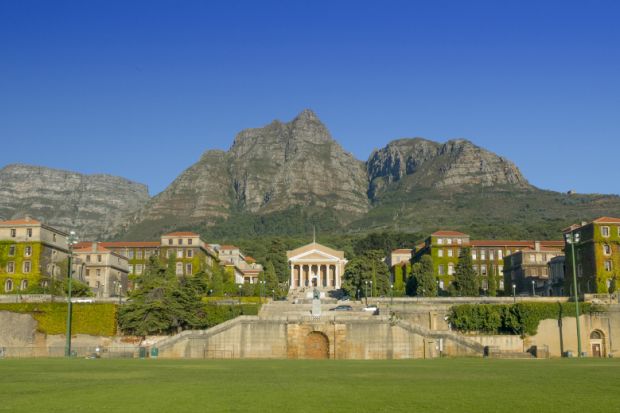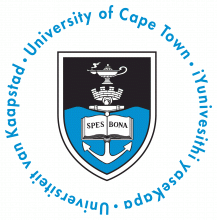
South Africa dominates a pilot ranking of the top 15 universities in Africa for 2016.
Six of the best African universities are in South Africa, including the top three universities overall: University of Cape Town, University of the Witwatersrand and Stellenbosch University.
Universities in Uganda, Ghana, Kenya, Egypt, Morocco and Nigeria also feature in the ranking, which is determined using the World University Rankings methodology.
Michael Sanne, a third year student on the Electrical and Computer Engineering degree at the University of Cape Town, said: "I chose UCT because I found it to be the most beautiful of the universities that I saw in SA.
"Academically I have been challenged more than I expected but have learnt many very interesting things that are relevant on a daily basis."
Mohammed V University of Rabat in Morocco secures the final spot at number 15 and is the only university in the Africa list that did not make the cut for the World University Rankings.
Generally, the universities in the ranking have a low percentage of international students on campus, ranging between 1 and 9 per cent. The only exception is the University of Cape Town, with 18 per cent international students.
At Makerere University in Uganda 9 per cent of the students on campus are international.
Fourth year journalism and communications student Musinguzi Blanshe says: "Socially, I have met students from across borders, from Kenya, Rwanda, Tanzania and other places. Living in a multi-cultural society has shaped my understanding and appreciation of diverse cultures."
Scroll down for a graduate blog about the student experience at the University of Cape Town.
International students at top African universities
|
Rank |
University |
Country |
International students |
|
1 |
South Africa |
18% |
|
|
2 |
South Africa |
9% |
|
|
3 |
South Africa |
8% |
|
|
4 |
Uganda |
9% |
|
|
5 |
South Africa |
6% |
|
|
6 |
South Africa |
8% |
|
|
7 |
Ghana |
2% |
|
|
8 |
Kenya |
1% |
|
|
9 |
Egypt |
2% |
|
|
10 |
Egypt |
1% |
|
|
11 |
Egypt |
3% |
|
|
12 |
Morocco |
1% |
|
|
13 |
South Africa |
9% |
|
|
14 |
Nigeria |
1% |
|
|
15 |
Morocco |
2% |
Blog: Studying at the University of Cape Town (UCT)
By Siobhan Keam, who graduated with a Bachelor of Arts in fine art and English literature in December 2012
Choosing a university in South Africa
I wanted to study fine art, and in my opinion the Michaelis School of Fine Art (the official title of the fine art department at the University of Cape Town) was the best fine art institution in South Africa for me. The focus on concept and theory alongside the practical component really appealed to me, as I didn’t just want to do a practical degree but wanted to explore the theory side too.
As a resident of Cape Town, I found the campus a convenient choice, as it was close to where I lived. I think I would have been willing to move, however, if Michaelis had been located in another part of South Africa.
The university experience
I really enjoyed my experience at university. I felt like I was pushed academically, and was encouraged to interrogate concepts and theories in a way that improved my art practice dramatically. We covered topics ranging from art history and semiotics to the philosophy of aesthetics, and I found this broad approach really interesting when combined with practical training, resulting in work that was more thoughtful and considered than it would have been otherwise. Alongside fine art, I completed a double major in English literature, which I also really enjoyed. Reading texts with a more critical and questioning mindset was great, as was being exposed to a variety of lecturers with different opinions.
Socially I also enjoyed my experience, making friends that I am still in touch with today. I did feel that that diversity at Michaelis was lacking in some respects (compared with the main campus). From a student perspective, this was probably a result of the high fees and the lack of available funding. The recent student protests in South Africa have been addressing this issue, which I think is really important – a South African university should attempt to be more representative of the population.
Overall, I had a really fulfilling and intellectually stimulating university experience, and I’m glad I chose to study at UCT.
The good, the bad and the beautiful
The campuses are really beautiful, with lots of old buildings and greenery. There is a good transport system between the different campuses, which is free for students and staff. There are lots of interesting talks and events hosted at the Hiddingh Campus (where the Michaelis School of Fine Art is located), so it’s a great way to get an introduction to the South African and international art scene. The technical staff at UCT are also really good, and are always willing to go the extra mile for students – in fine art, where lots of techniques are learned, this is particularly important.
In terms of what could be improved, the issue of diversity could be addressed – this applies to both students and faculty. This is a continuing issue in South Africa in general, and a highly complex one, but institutions of higher learning have a responsibility to lead the way, and shape the kind of society they want to be part of.
Advice for prospective students
Having lived in London for the past year and being exposed to an international art scene, I've come to realise that my education in the arts was of a really high standard, and able to compete with more well-known universities around the world.
From a practical perspective, if a student were considering studying at Cape Town, I would advise that they stay in a digs (a shared student house) rather than in university res (student residential housing). It’s a good way to participate in student life and to get to know people, without being restricted by the rules and regulations of a university res.















Have your say